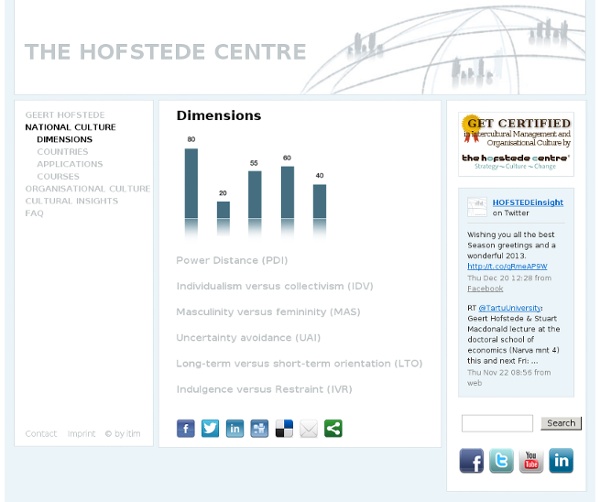PHILOSOPHICAL PERSPECTIVES IN EDUCATION
Section III - Philosophical Perspectives in Education Part 3 Educational Philosophies Within the epistemological frame that focuses on the nature of knowledge and how we come to know, there are four major educational philosophies, each related to one or more of the general or world philosophies just discussed. Perennialism For Perennialists, the aim of education is to ensure that students acquire understandings about the great ideas of Western civilization. Essentialism Essentialists believe that there is a common core of knowledge that needs to be transmitted to students in a systematic, disciplined way. Progressivism Progressivists believe that education should focus on the whole child, rather than on the content or the teacher. Reconstructionism/Critical Theory Social reconstructionism is a philosophy that emphasizes the addressing of social questions and a quest to create a better society and worldwide democracy.
Student Power!
The key commodity in education has been knowledge. It's the reason why we built buildings called schools and required children to come from miles around to sit in a room with the knowledge held in teachers' brains and captured between the covers of textbooks. That model has clearly been disrupted or -- to be honest -- destroyed. The Independent Project There are many lenses through which we can look at the changes now happening in schools: the Common Core lens (perhaps the most popular), the technology lens, the PD lens, the finance lens, the jobs lens. Consider the unthinkable -- have we reached the point where students could design their own curriculum? One of my favorite projects where students grasped the power to design their own learning is The Independent Project from Monument Mountain Regional High School in Massachusetts. During afternoons, students worked on their "Individual Endeavors." In the end, the first year's pilot was deemed very successful. Learning in Partnership
Mobbing in Schulen | Home
Das neue Paradigma der Erziehung: keine Erziehung
Der dänische Familientherapeut Jesper Juul meint, wir sollten uns von der Idee der Erziehung ganz verabschieden und stattdessen mit unseren Kindern endlich wirklich in Beziehung treten. Das Erziehen endlich sein lassen Erziehen - da steckt das ziehen schon mit drin, und die Anstrengung auch. Und dann noch wie? Eltern sein ist nicht leicht dieser Tage, Erziehungswissenschaftler und -berater könnten sich in ihren Ratschlägen kaum grundlegender widersprechen. Eltern sind einer Fülle von verschiedenen Erziehungskonzepten ausgesetzt, die jeweils suggerieren, das jeweils andere sei für das Kind ganz schrecklich falsch. Inmitten dieses Chaos stolpert man beinahe über die Stimme von Jesper Juul. In Beziehung sein Erziehung, das bedeutet nämlich in den meisten Fällen eigentlich Abrichtung. Die Beziehung von Eltern zum Kind sei in vielen Fällen eine Subjekt-Objekt Beziehung, kritisiert Juul. Von Erziehung zu Beziehung also. Lernen durch Imitation Juuls Erziehungsmethode ist also gar keine.
Steve Hargadon: Escaping the Education Matrix
“We tell a story about the power of learning that is very different from what we practice in traditional models of school,” says Steve Hargadon, education technology entrepreneur, event organizer, and host of the long-running Future of Education podcast series. If we really want children to grow up to become self-reliant and reach their full potential, “we would be doing something very different in schools. We live in a state of cognitive dissonance.” His comments are informed by a recent cross-country tour facilitating community discussions on education, as well as more than 400 interviews he’s logged with a broad spectrum of education practitioners, analysts, and innovators. “What are most kids getting out of 12 years of school?” “How do you tell a story that opens the door to rethinking what people have believed for decades?” The system’s fundamental design also leads to a host of unintended consequences, including bullying. There are also vested interests in the status quo. Related
Für das Kind ist Spielen und Lernen synonym … | Der Mensch - das faszinierende Wesen
… und dann kommt es in die Schule und soll nur noch lernen! Ándre Stern, der sich zuhause bilden durfte André Stern, der nicht in die Schule musste sondern zu Hause lernen durfte, spricht über unsere unsägliche Art und Weise unserer Erziehung von oben herab. In diesem Interview spricht er über die Inspirationen die er gibt, über andere Möglichkeiten nachzudenken, wie Dünger für das Gehirn gegeben wird, um in BeGEISTerung zu lernen. So aufgewachsen bricht das Denken in Hierarchien der Berufe. Wir kommen auf die Welt und sind optimiert für sie, und plötzlich reißt man das kleine Kind daraus und will es für die Welt vorbereiten. André erzählt darüber, dass er in seiner Kindheit nicht in seinem fließenden Spielen unterbrochen wurden und so in seiner Begesiterung bleiben konnte. Gerne möchte ich auf diesen Artikel, der einen Blick die damalige Motivation zur allgemeinen Schulpflicht wirft, verweisen:Der heimliche Lehrplan die Schulpflicht betreffend Gefällt mir: Gefällt mir Lade...
Code of Ethics for Educators
The professional educator strives to create a learning environment that nurtures to fulfillment the potential of all students. The professional educator acts with conscientious effort to exemplify the highest ethical standards. The professional educator responsibly accepts that every child has a right to an uninterrupted education free from strikes or any other work stoppage tactics. PRINCIPLE I: Ethical Conduct toward Students The professional educator accepts personal responsibility for teaching students character qualities that will help them evaluate the consequences of and accept the responsibility for their actions and choices. We strongly affirm parents as the primary moral educators of their children. The professional educator, in accepting his or her position of public trust, measures success not only by the progress of each student toward realization of his or her personal potential, but also as a citizen of the greater community of the republic. 1. 2. 3. 4. 5. 1. 2. 3. 4. 5. 6.



